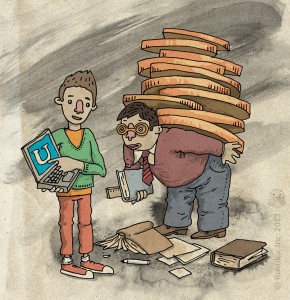A couple of years ago I went on a pilgrimage to Wittenburg – the birthplace of the Reformation. The impact of those events 497 years ago are still being felt today – including a lot of the best things about America.
Martin Luther set the ball rolling on the idea that the result is in our own hands. Too many cultures around the word encourage people to think that their destiny is determined from the day they are born based on who their parents are, where they were educated, who they know and what is expected of them. And this becomes a self-fulfilling prophecy because they give up before they have even tried.
In America the opposite is true – the only thing that limits us is the strength of our own will and the power of our imagination. Be persistent, be optimistic, be self-critical and look to sharpen your skills and those around you every day.
You need to instil the same culture of free will and self-confidence in your team. Exogenous events are to be dealt with and used to your advantage. Everybody should look to constantly improve their performance through training and acquiring new skills rather than just staying in the deterministic comfort zone of what they know they are good at.





